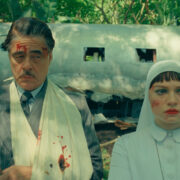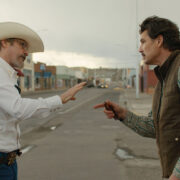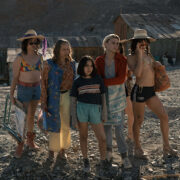The Beginner’s Guide: Andrea Arnold, Director
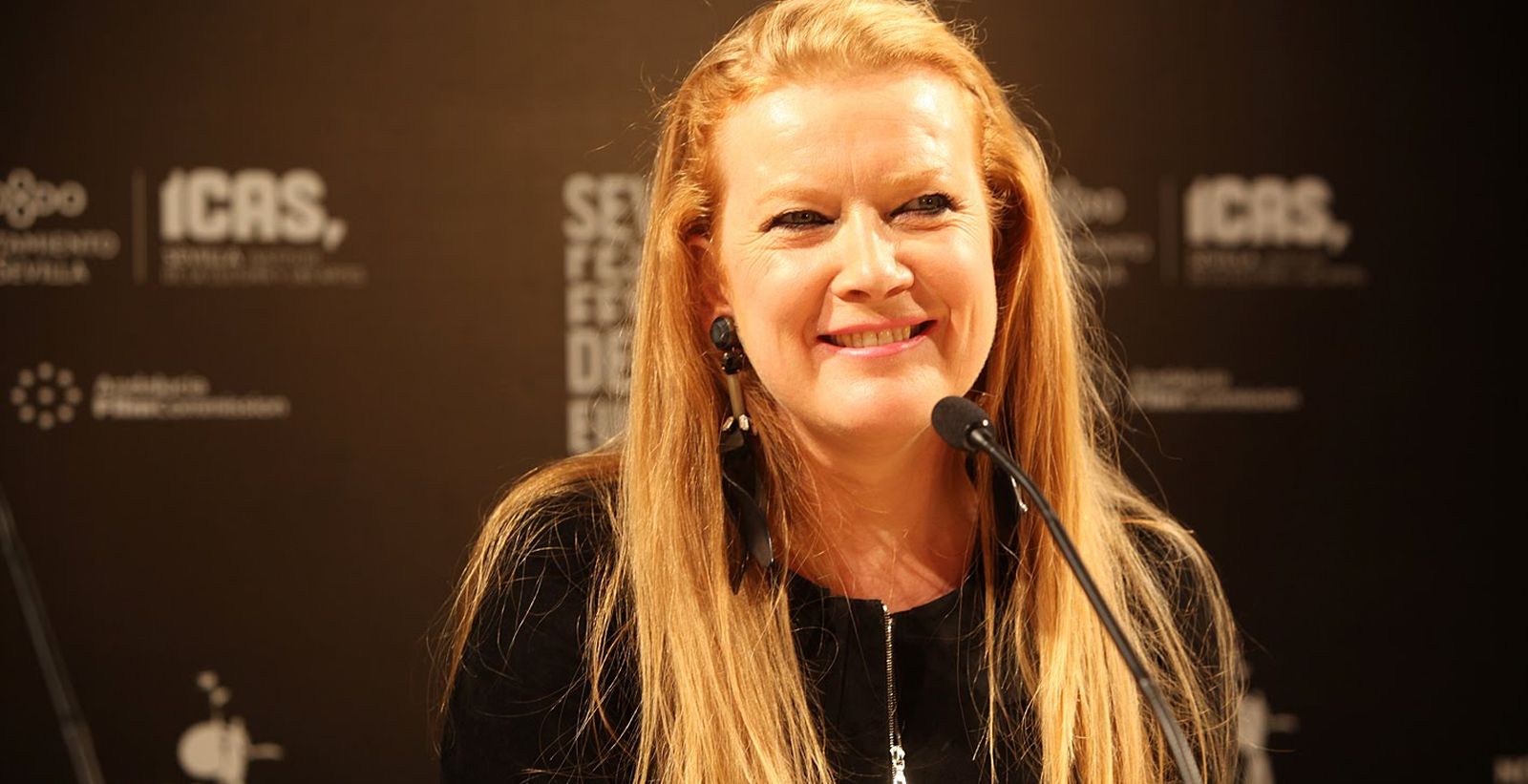
I love film, more than people probably, and I will…
There aren’t many people who can claim that the woman they watched larking about on children’s morning television when they were a toddler also became of one of their favourite film directors as an adult. But that’s exactly what Andrea Arnold turned out to be, for me.
For those of you who have never heard of her I can guarantee that you’ll be impressed. With only a bunch of shorts and three features under her belt Arnold is already a script writer who can deftly transform and translate British life onto film, and a director who is second to none on mastering emotional tension.
Humble Beginnings
Arnold was born in the sixties to teenage parents. Following the addition of three siblings Arnold’s parents broke up and her mother was forced to raise her children alone. (This idea of the single mum would come back to regularly feature in Arnold’s film work.) When she was eighteen Arnold moved to London and found work in television. Her first real job was as a children’s TV presenter on the show I would later remember her from, No. 73. She would then move on to a similar series before penning the teen show A Beetle Called Derek.
As time went on Arnold came to realisation that she was more interested in what happened behind the camera, and in the mid-nineties she moved to Los Angeles and studied directing at the AFI Conservatory. She also studied script-writing at the PAL (Performing Arts Lab) in Kent. After returning to the UK for good she would give birth to her only daughter before promptly embarking on a career in film shorts that, in only a few years, would win her an Oscar.
The Shorts
It is very easy in this day and age, and even in the nineties, to proclaim that you wanted to work in film and just have a go. Indeed, after her work on television Arnold was in a prime spot to move on to film. What is admirable is that she wanted to learn, and put a great amount of energy into preparing herself for life as a filmmaker. Additionally she began all this as she also began the work of being a mother. Being a mum, no doubt, has had a great influence (as her own childhood has) on her work as a writer and may indeed have given her the inspiration for her first short, Milk.
Milk is the story of a woman dealing with the loss of her baby. The idea is potent and as the narrative builds you can feel what is apparent in much of Arnold’s work; this idea of the body as a weapon or as a tool, as something which can control our emotions but, conversely, also give us away. While her directing is not at its best in this first short, her great potential is apparent. Arnold then went on to make Dog in 2001, about a young girl who goes out with her boyfriend against her mother’s wishes, followed by Wasp in 2003.
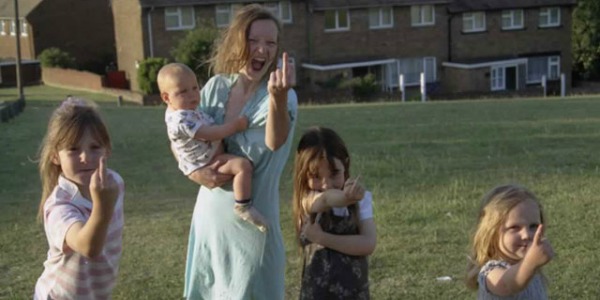
Wasp would see Arnold win a clutch of film festival awards, including the Sundance International Short Filmmaking Award and the Oscar for Best Short Film (Live Action). Wasp is the story of a young single mother, with four kids, who is torn between her family and the desire to go on a date with an old flame. It would be easy to define Wasp as a story about a bad mother but Arnold would never make anything so simple.
Zoë (played excellently by Natalie Press) is a woman with real passion, who loves as violently as she fights. She isn’t selfish, she just wants, and wants to be wanted by someone, as desperately as she wants to protect her children. The short but eloquent narrative is emotional and gripping, and would ignite Arnold’s filmmaking career.
Red Road & Fish Tank
In 2006 Arnold released Red Road, which became a critical success. Formed on an idea by The Advance Party (a Danish project headed by Lars Von Trier), to create three films using the same group of characters, the story of the mysterious Jackie is a profound and gripping thriller. A CCTV operator in Glasgow, she spends her dreary life watching the people on her screens until on one day she recognises a man who she is compelled to confront.
What follows is a mysterious and rich narrative filled with emotion. In Red Road Arnold defined her filmmaking style. Her camera, as in Wasp, is fast and then lingering. She follows people as they follow their emotions, up and down, fast then slow, her swinging camera only serves to emphasise the tension in each scene. She grips her audience fastly to the emotions of the characters.
In Arnold’s world dialogue isn’t needed, so deftly does she draw emotion from her actors and her scenes. Red Road is an incredible film and one which saw Arnold winning a BAFTA for Most Promising Newcomer and the Cannes Jury Prize. With her style in place Arnold would then go on tackle the larger and more complicated production, Fish Tank.
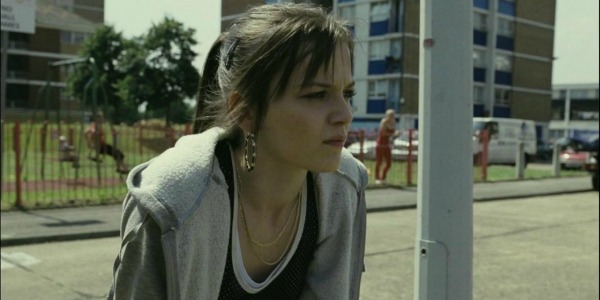
Fish Tank, though a larger scale production, is emotionally simpler than Arnold’s earlier work. It tells the tale of a young teenage girl, Mia (Katie Jarvis), who develops a crush on her mother’s boyfriend, Conor (played by Michael Fassbender, in one of his last roles before ascending to the A-List). But, again, in Arnold’s hands this story is more complicated than it would first appear. Mia is complex, she is young and innocent, she wants to be a dancer. She also wants to be wanted, by her mum, by Conor. Her innocence along with her curiosity about the adult world is balanced perfectly by Arnold.
Mia isn’t portrayed as some silly little girl, but she’s not over sexualised either. She’s simply a young girl (fifteen) literally on the verge of womanhood. How Arnold so deftly deals with her wants and desires, and the threat of the outside world makes you wonder at how badly teenage girls have been portrayed before this. Fish Tank won a host of awards, including the BAFTA for Best British Film and yet another Cannes Jury Prize for Arnold.
While much of Fish Tank’s narrative is perhaps quite obvious, Arnold’s depiction of Mia is unique and special. As in Wasp and Red Road before, Arnold makes abundantly clear a point which is missing from so many other films, that women are deep, emotional beings. They feel sexual desire and yearn like any man would, and refreshingly, through Arnold’s camera, that isn’t something to be ashamed of.
Arnold’s Passionate Woman
Even in her short filmmaking career clear themes have arisen from Arnold’s work. The first of her defining characteristics is her portrayal of the ‘passionate woman’. All the women in Arnold’s films are emotional beings, they fight, they love, and are are never treated with kidgloves. As her camera moves with them they throw themselves and their bodies into undefined and sometimes threatening circumstances.
As part of these honest portrayals, the sex in these films is never just a physical act to be filmed in the most clinical of ways. Nor is it something the male characters initiate. In Arnold’s world, sex is a raw emotional communication between two characters. The sex culminates from a reciprocated atmosphere, and is filmed as frenetically as the emotions of the characters dictate. Unlike in many other films, Arnold’s women are never just victims of sexual desire. They want and are wanted, deeply, in return. To see that on film is a rare and tremendous thing.
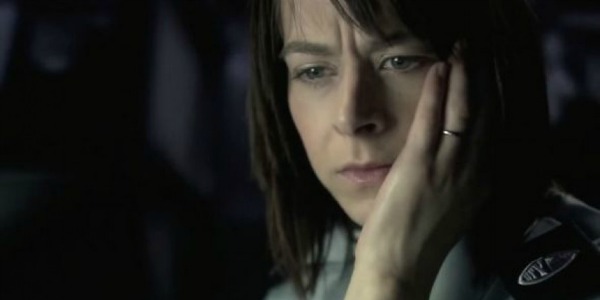
This passion is conveyed throughout Arnold’s work, as her moving camera shifts and swings along with the emotions of the characters, drawing you into their feelings, their passion. Arnold follows the women in her stories, closely. We walk behind them, we run with them, we are so close that we can feel what they feel. With Arnold’s female protagonists we are treated to what is obviously missing from the rest of the cinematic landscape, a real woman.
An Uncertain Future?
Arnold’s third and most recent feature is an adaptation of Wuthering Heights. While Arnold’s camera still plays a vital and fulfilling role in the portrayal of the emotional early years of Heathcliff and Cathy’s friendship, this film doesn’t quite hit the spot as her others. There is no doubting that it is an excellent piece of filmmaking, but this story, even adapted as it is by Arnold, has been told many times before and it is just not engrossing anymore. Especially, in this case where Arnold has chosen to draw out the earlier years of the story and shorten the later years where, I feel, her skills as a director would have been most suited.
Wuthering Heights was released in 2011, since then Andrea Arnold has been working on her first ‘American movie’ American Honey (originally titled The Mag Crew). The film tells the tale of a young girl who falls in with a magazine subscriptions sales crew. The film was originally slated for release this year but a date has yet to be announced. Apart from her film work Arnold also spends a great deal of her time working on film festivals and occasionally directs for television. It has been announced that she will direct two episodes of the award-winning series, Transparent.
Arnold’s career can now go in a number of directions but it is the fervent hope of this writer that she returns to what she began with; stories of real, passionate women. It is also my hope that after reading this you have developed an interest in seeing her work. Begin with Red Road, though it is her masterpiece nothing of hers will feel disappointing afterwards. From there it’s a just sharp short fall into a world where women act and love and fight, and on our contemporary cinema screen that is something very beautiful to behold indeed.
Red Road is available on DVD, as are Fish Tank & Wuthering Heights, which are also almost internationally available on Netflix. Wasp can be found as a bonus on the Fish Tank DVD and on the Cinema 16: European Short Films DVD.
Does content like this matter to you?
Become a Member and support film journalism. Unlock access to all of Film Inquiry`s great articles. Join a community of like-minded readers who are passionate about cinema - get access to our private members Network, give back to independent filmmakers, and more.
I love film, more than people probably, and I will watch pretty much anything. Seriously, anything! I have a postgraduate education in film & have spent an exceptionally long time trying to get inside the film industry. I'm a big believer in treating every film the same, and bringing something new to the film theory table, giving reasons for every argument made. You'll find that I'm an empathetic and fun sort of reviewer, at least, I like to think so. If I'm not watching films I'm doing exceptionally nerdy stuff, like watching documentaries about the history of medicine and collecting photos of old post boxes.










